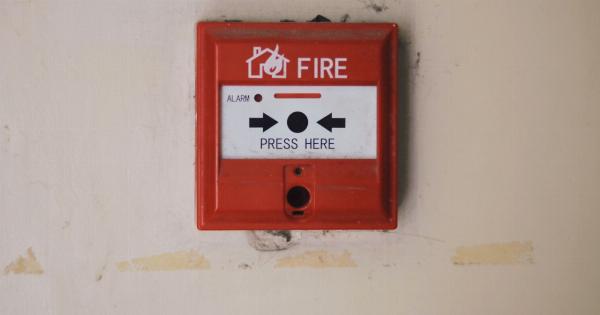Peptic ulcers refer to open sores that develop on the lining of the stomach, esophagus, or small intestine. It occurs due to the imbalance between gastric acid secretion and the defensive mechanism of the mucosal layer.
These ulcers are quite common, affecting around 10% of the population at some point in their lives. If left untreated, peptic ulcers can cause severe complications like internal bleeding, perforation, or obstruction in the digestive tract. Here are the seven common signs and symptoms of peptic ulcers:.
1. Pain in the Upper Abdomen
The most common symptom of peptic ulcers is pain or discomfort in the upper abdominal area. It typically occurs between the navel and the breastbone, often described as a burning, gnawing, or aching sensation.
The pain can come and go, lasting from a few minutes to several hours, and may be worse at night or when the stomach is empty.
2. Nausea and Vomiting
Peptic ulcers can cause nausea and vomiting, especially after eating, as the stomach struggles to empty its contents. This can lead to a loss of appetite and unintended weight loss over time.
3. Bloating and Heartburn
Bloating and a feeling of fullness after eating are common symptoms of peptic ulcers. This can be accompanied by heartburn, a burning sensation in the chest that is caused by the backflow of stomach acid into the esophagus.
4. Indigestion and Belching
Indigestion, or dyspepsia, is another sign of peptic ulcers. It is characterized by discomfort or a burning feeling in the upper abdomen, along with belching or gas. These symptoms can be exacerbated by stress, certain foods, or medications.
5. Black or Tarry Stools
Peptic ulcers can cause internal bleeding, which can manifest as black or tarry stools. This happens when the blood is broken down by digestive enzymes in the stomach, causing it to appear dark and sticky.
If you notice this symptom, it is essential to seek medical attention immediately.
6. Fatigue and Weakness
Chronic peptic ulcers can result in anemia due to the loss of blood from internal bleeding. Anemia can cause fatigue, weakness, and shortness of breath, as the body struggles to maintain oxygen levels in the blood.
7. Chest Pain and Difficulty Breathing
In rare cases, peptic ulcers can cause chest pain and difficulty breathing, which can be mistaken for heart attack symptoms. This happens when the ulcer perforates the stomach wall, allowing stomach acid and food to leak into the chest cavity.
If you experience any of these symptoms, it is essential to seek medical attention promptly. Your doctor may recommend various tests, such as endoscopy, biopsy, or abdominal X-ray, to diagnose your condition and develop an appropriate treatment plan.
Conclusion
Peptic ulcers are a common digestive problem that can cause several symptoms, including upper abdominal pain, nausea, gas, heartburn, and black or tarry stools.
If left untreated, they can lead to severe complications like internal bleeding, perforation, or obstruction in the digestive tract. If you experience any of these symptoms, seek medical attention immediately to obtain a proper diagnosis and treatment plan.




























